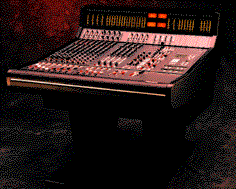Eight-time Grammy winner, record producer Phil Ramone, has been hired by web music producers N2K (“Need To Know”) to create a music label linked to the Internet.
Ramone will be President of a division to be called N2K Encoded Music. In his new post, Ramone, will sign artists from all musical genres. He will also oversee the Music Boulevard site, one of the web’s most popular CD retail sites.
The first Encoded Music release is scheduled for early next year. It will be a compilation of the most popular jazz music chosen in a poll on N2K’s Jazz Central Station web site. All Encoded Music releases will be in the enhanced CD format, which plays on regular compact disc players and computers. Each disc will link users to an N2K-produced artist site on the Web.
Earlier this month, Music Boulevard presented Sammy Hagar at the AES Convention in Los Angeles. Hagar demonstrated a web audio transmission of unreleased music from his web site, via high-quality Liquid Audio technology. And in September, the company released a David Bowie single that was only available at Bowie’s web site (also created by N2K).
Eventually, N2K hopes to allow users to download entire recordings to their computers as direct purchases. They also intend to host cyberconcerts on the web. Other N2K web sites currently online include Classical Insites and Rocktropolis.
 Harrison has shipped a 52-wide TV950 to the Belgian Radio and Television Network (BRTN). It will be installed in a new BRTN mobile unit for use in live broadcast feeds. The console is configured with 30 mono mic/line inputs, 6 stereo inputs and 6 group modules. Along with standard assignable fader start logic and two program masters, this TV950 is equipped with a 24 multitrack busing on all inputs, groups and master modules, for multitrack output level control.
Harrison has shipped a 52-wide TV950 to the Belgian Radio and Television Network (BRTN). It will be installed in a new BRTN mobile unit for use in live broadcast feeds. The console is configured with 30 mono mic/line inputs, 6 stereo inputs and 6 group modules. Along with standard assignable fader start logic and two program masters, this TV950 is equipped with a 24 multitrack busing on all inputs, groups and master modules, for multitrack output level control.